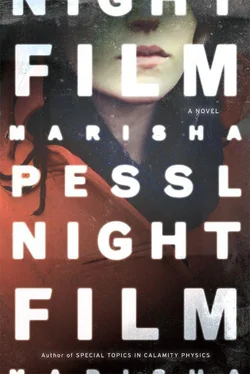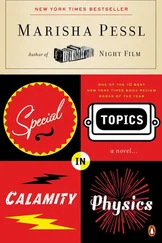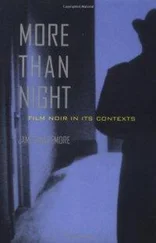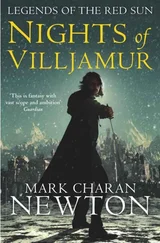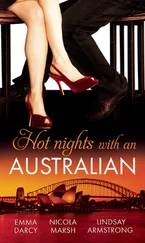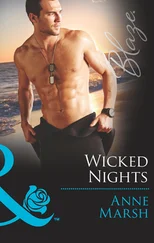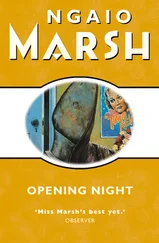She looked furious but bit her tongue, striding deliberately to the bar in the corner and pouring herself a drink.
“If that was slave labor, then millions would die to be slaves,” she muttered. “They lived like kings. ”
“They couldn’t leave. So technically they were prisoners.”
“It was how they paid for the crossing — all agreed to ahead of time. There was no coercion and no lies. At the end of production, we could hardly get them to go. They wanted to stay on forever.”
“Like children not wanting to leave Epcot. Touching. ”
She narrowed her eyes. “What do you hope to gain out of all this?”
“The truth.”
“ The truth. ” She smirked, quick as a spark off a defunct lighter, then looked serious. I could see she was genuinely shocked by my showing up here — of that I was certain — and seemed now to be deciding how best to handle the situation, the quickest way to be rid of me. She must have decided to play along, at least for now, because she cocked her head to the side and smiled stiffly.
“Can I get you a drink?”
“So long as it’s not poured over arsenic.”
She fixed me a glass of Jameson from the same bottle she’d served herself, and hurried over, thrust the glass at me.
I noticed, as she sat down on the couch adjacent, she actually had a small wheel tattoo on the back of her left hand — exactly as I’d read weeks ago on the Blackboards. The anonymous poster had claimed it was evidence Gallo and Cordova were the same person. Staring at her rigid profile now, I considered the possibility that the director and his assistant were one and the same, that this was Cordova. But there was something about the woman, in her stocky lieutenant’s bearing, in her flitting eyes, so subservient and unfulfilled — as if the eternal object of her attention was not present, but standing somewhere in the wings.
No, she was most certainly not Cordova. I was positive. And she was stalling.
“Before you demand to see the scaffolding, Mr. McGrath,” she said, staring me down, “make sure it is what you actually want to see. The cranks and the ropes and the metal supports. The rust and the heavy chains. Lights painstakingly positioned overhead. It’s a different reality than what’s on-screen. And much less thrilling.”
She tilted her head, as if struck by a new thought, closely scrutinizing my face and smiling thinly.
“It’s funny. I’d have thought you of all people would have been on to her. You really never saw it?”
“Saw what?”
“Surely you must have noticed hints, here and there, clues—”
“Hints of what ?” Suddenly I sensed I no longer had the upper hand in this situation, that Inez Gallo had recovered —or I’d never had her in a corner in the first place.
She raised an eyebrow. “You really never figured it out?”
“Figured out what ?”
“Ashley was sick. ”
“From the devil’s curse.”
She chuckled. “I can assure you, and so can an army of doctors and specialists around the world, Ashley never suffered from a devil’s curse. Or any other type of curse. She had cancer. Acute lymphoblastic leukemia. She had it off and on all her life.”
I stared at her, stunned.
My first infuriated inclination was to tell her I knew what she was doing, force-feeding me another lie so I’d trust her. It was a preposterous assertion and I knew it wasn’t true.
It couldn’t be.
But then, almost as quickly, I wondered if I’d missed something— if Hopper had —if this, a real-life illness, had been there all the time, written in the sand, and we’d been straining our eyes, staring far out to sea, never once looking at our feet.
“Call Sloan-Kettering if you don’t believe me,” Gallo added petulantly. “Find someone to bribe in the records department, and they’ll tell you. Ashley was treated there three times, registered under Goncourt, her mother’s maiden name. The first time when she was five, the second when she was fourteen, and finally when she was seventeen, also at the University of Texas at Houston.”
She looked at me with triumph. “You’ll see I’m right. ”
I said nothing, going through the dates in my head. Ashley had been only five years old when she’d crossed the devil’s bridge, condemning her to the curse. At fourteen, she’d abruptly abandoned her classical music career, and at seventeen — I felt a rush of disbelief: At seventeen Ashley had called Hopper, crying. She was desperate, he’d told us. She couldn’t live with her parents anymore. She wanted to go where they couldn’t find her. Had she wanted to escape her illness?
“It isn’t your fault,” Gallo announced flatly, as if reading my mind. “Whatever wild nonsense you’ve come to believe, curses and Satan, the bogeyman — though honestly, I’d have expected a grown man, a veteran reporter, to be a little more skeptical. But give yourself a break. Ashley was a charismatic girl. You’d be surprised what she’s convinced people of over the years. She was quite proficient in making people believe the impossible. Like her father. They had a knack, the both of them, for taking you by the hand, looking deep into your eyes, so you’d follow them down into the passageways of the absurd and unbelievable and live there forever, a total convert. I know. I did it. For forty-six years. Gave up everything. My husband. My kids. But now that it’s over I can see. Probably because I’m not one of them. I don’t have trouble distinguishing make-believe from reality. I live in the real world. And so do you. ”
She said it insistently, even angrily, crossing her arms.
“Her sickness tore the family apart. For young children the prognosis for ALL is good. After the first round of treatment, most have remissions that last a lifetime. It wasn’t the case with Ashley. Every time we thought she was out of the woods, that she would at last be granted the gift of a life without round after round of shots and steroids, spinal taps, and stem-cell transplants, a few years would pass, she’d be tested, and the doctors would give us the terrible news again. Matilde had returned.”
“Matilde?” I repeated.
She nodded, eyeing me. “It was Ashley’s name for her illness. She nicknamed it, the way other children nickname imaginary friends, which will give you a good sense of the way her mind worked. When she was five, one morning she came into the kitchen, and as she ate her bowl of Cheerios she cheerfully announced to her mother that she had a new friend. Who? Astrid asked her. Matilde, she answered. Matilde. It was a strange name. No one knew where she’d heard it. Matilde is going to kill me, Ashley said. Everyone was startled, but then, she was her father’s daughter. Dramatic. Blessed — you might even say cursed —with the most graphic of imaginations. The very next day, Ashley became sick with a high fever. Tiny red spots covered her arms and her back. Astrid took her to the hospital, and the doctors gave us the terrible news.”
“But wasn’t Matilde meant to be the title of Cordova’s next film? A film that was never released.”
Gallo nodded. “He wanted to write about it. But he couldn’t. To write directly about something so gutting is like staring at the sun, day after day. You can’t really make it out, no matter how hard you try. You’re sure to go blind.” She sighed. “He didn’t want to work on another film, wanted only to save his daughter. It’s excruciating for a parent to lose a child. But it’s even worse to watch your child suffer, day in, day out, teetering interminably between life and death, living a life of death. But you go through with it, continue to fight, because you hope one day it won’t be like this. Life can be so cruel. It doles out just enough hope to keep you going, like a small cup of water and one slice of bread to someone on the verge of starvation.”
Читать дальше
